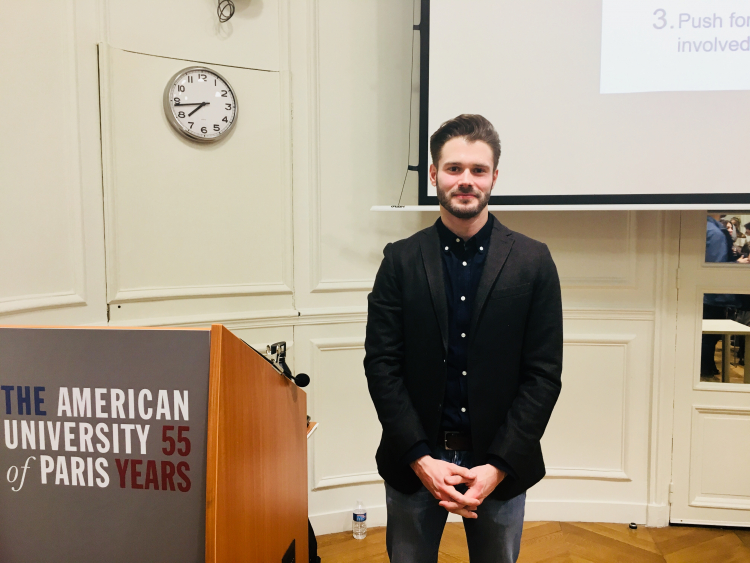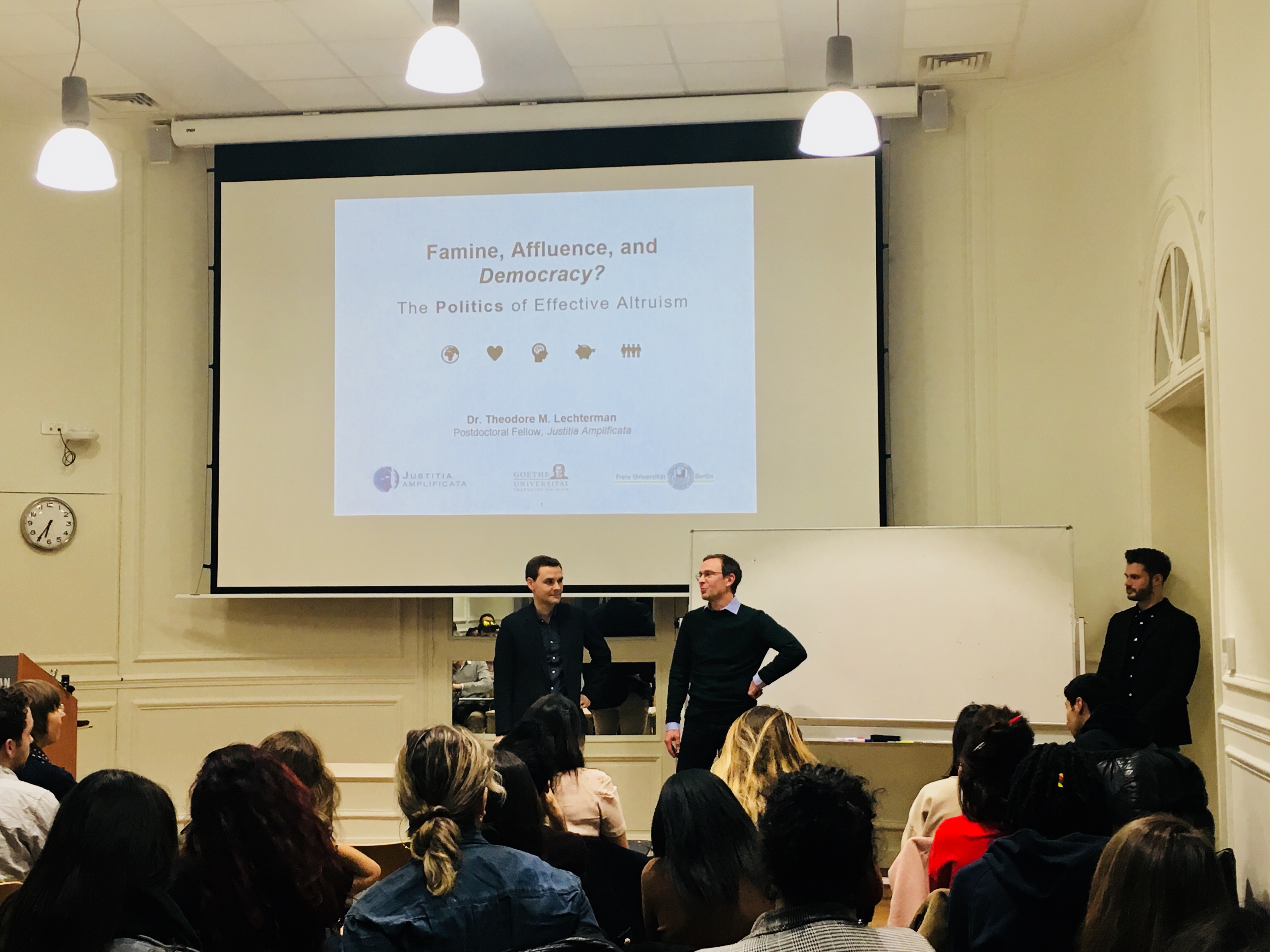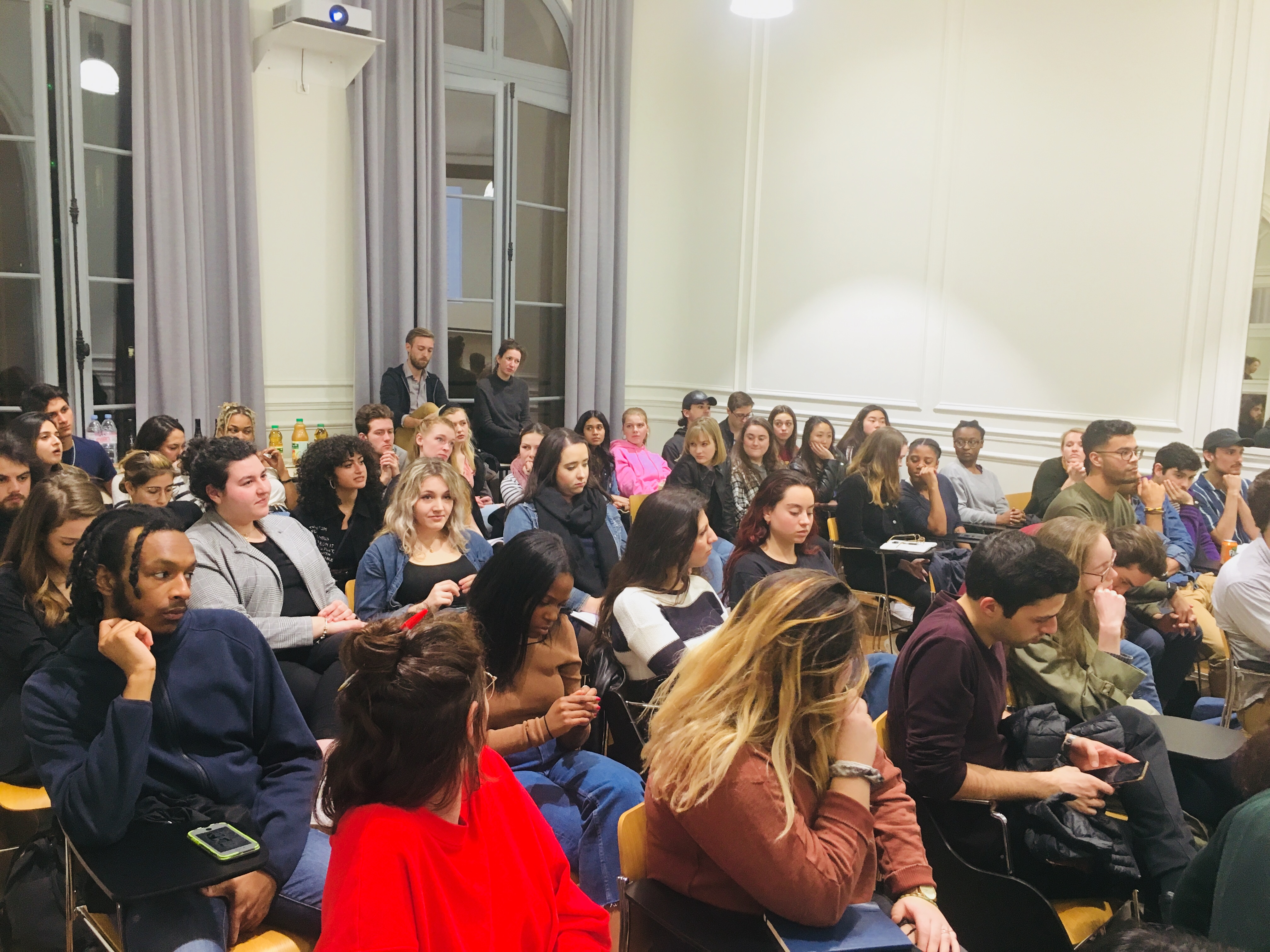Famine, Affluence, and Democracy?

On Monday evening in Combes, room C-102 was packed full of students, professors, and faculty to hear Ted Lechterman give his talk: "Famine, Affluence, and Democracy?" Lechterman was invited to AUP by Professor Jessica Feldman, an old colleague of his.
Lechterman, a highly accomplished researcher, has his A.B in government from Harvard, was an interdisciplinary ethics postdoctoral fellow at Stanford, and currently is a Postdoctoral fellow at Justitia Amplificata. The main focus of his research is on Democratic ideals and how they apply to economics. Currently, Lechterman is writing a manuscript on the relationship between philanthropy and democracy.
Introductions before the talk started. Image Credit: Chanet Smith
He starts his talk with global poverty and the issues surrounding it, which leads to his main point, the concept of 'effective altruism'. Effective altruism, "uses careful reasoning and the best scientific evidence to make the greatest in global wellbeing," says Lechterman. He included examples of organizations and ways to get involved with effective altruism correctly, as he believes that we all have a duty in achieving better wellbeing for others.
"People who are not members of the global core have strong duties to the members of the global core.", Lechterman said. As complicated as the subject may seem, Lechterman provided numerous examples of simple scenarios of what is and is not effective altruism. He clearly stated an issue, a solution, and his stance on famine, affluence, and democracy.
Students listen to each other as the floor is opened for questions. Image Credit: Chanet Smith
"In my own decisions, I am active politically and I contributed to organizations that involve political reform. I am interested in other strategies that I've suggested, but I have failed to find information that I need to make some of these decisions myself. I am excited about the possibility for people to do more research on these questions. So, I think funding research in these specific ways is something that we should all be doing more of," said Lechterman.
Lechterman opened the floor for a Q&A, where many eager students and faculty thanked him for his talk and asked him in-depth questions followed by wine and snacks.









